Welcome
The Institute for Information Systems (WIN) was established on January 1, 2025 at the Karlsruhe Institute of Technology (KIT). The founding of the WIN Institute at KIT is a response to the growing importance of investigating and designing the digitalization of economy and society from a socio-technical perspective.
The mission of WIN is to create value from information! We strive for top-tier research in information systems and related fields, leveraging unique research infrastructures, strong community ties, and close collaboration with business, society, and politics to drive innovation. We deliver solutions for real-world problems, and inspire as well as challenge our students through research- and practice-based teaching.
The following research groups belong to WIN:
| Information Systems I | human-centered systems lab (h-lab) | Prof. Dr. Alexander Mädche |
| Information Systems II - Digital Energy Markets | TT W1 N.N. |
| Information Systems III | Prof. Dr. Jella Pfeiffer |
| Information Systems IV - Digital Platforms & Services | TT W1 N.N. |
| Information Systems V - Hybrid Intelligence in Organizations | W1 N.N. |
| Information and Market Engineering (IM) | Prof. Dr. Christof Weinhardt |
In addition, two industry-on-campus groups belong to WIN:
| Digital Service Innovation (DSI) - IBM Industry-on-Campus Group | Prof. Dr. Gerhard Satzger, Dr. Carsten Holtmann |
|
Dr. Rainer Hoffmann, Dr. Sebastian Sternberg |
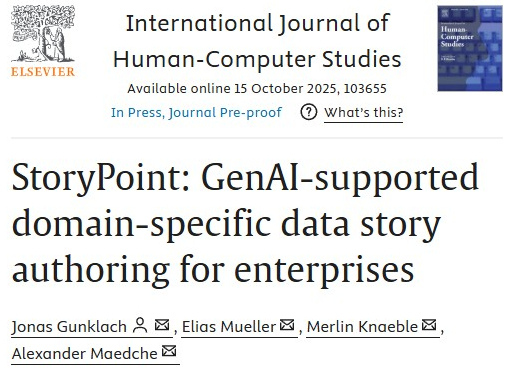
The International Journal of Human-Computer Studies has published the paper "StoryPoint: GenAI-supported domain-specific data story authoring for enterprises". The paper is co-authored by Jonas Gunklach, Elias Mueller, Merlin Knaeble, and Alexander Maedche from the human-centered systems lab (h-lab).
More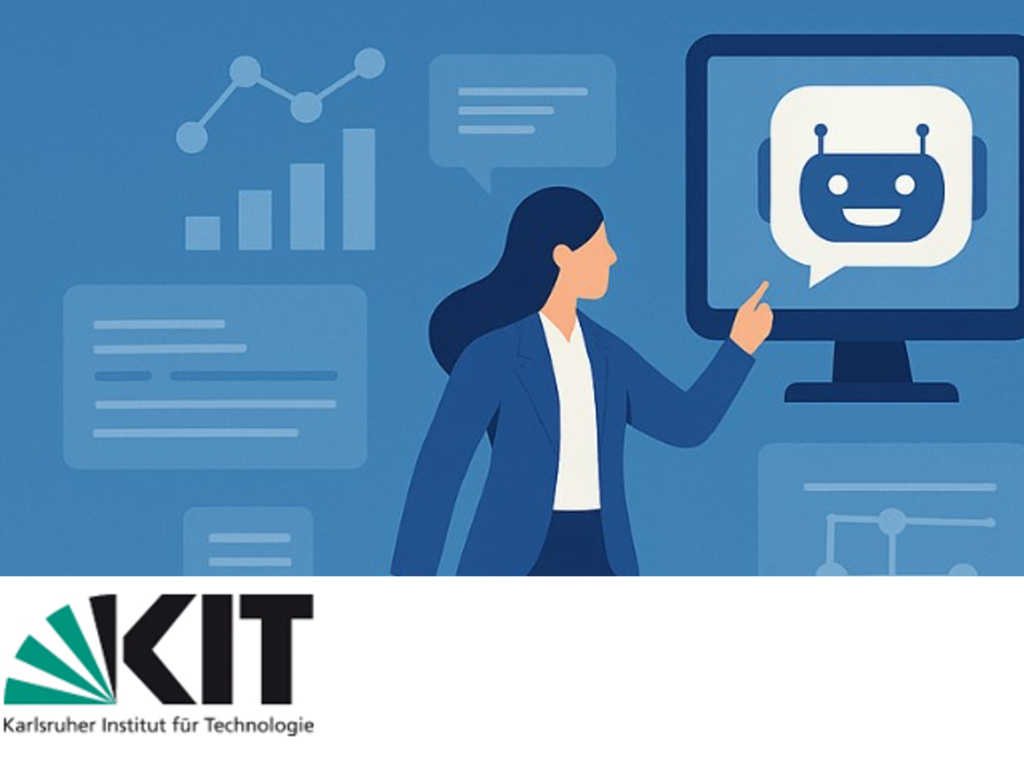
The position offered at the human-centered systems lab (https://h-lab.win.kit.edu/) of the Institute of Information Systems (WIN) (https://www.win.kit.edu/) is embedded in the third-party funded research project "MenschKI!" (https://menschki.org/). In close collaboration with partner companies and the non-profit association UIG e.V. (https://nutzerfreundlich.digital/), the project aims to design and pilot new approaches for personalized learning and the continuous adaptation of generative AI-based information systems to increase employee productivity and well-being. In addition, scalable transfer concepts for transfer to other companies will be developed.
More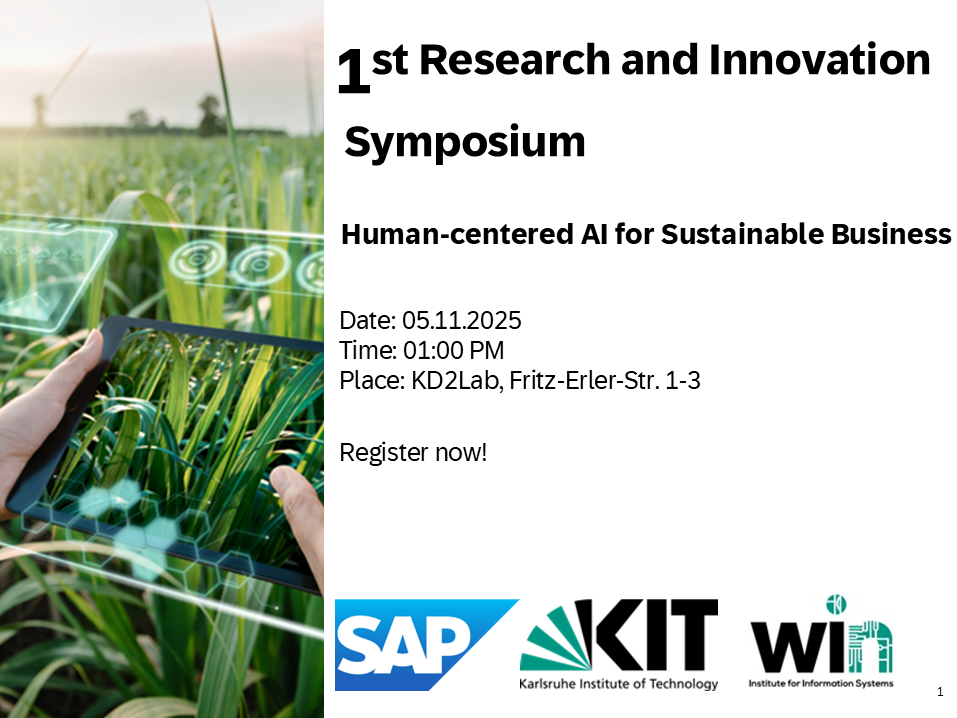
Human-centered AI meets Sustainability! On November 5th, 2025 experts from SAP and KIT will share insights on how AI for enterprise systems should be designed to support sustainable business transformation following a human-centered design approach.
More
The Institute for Information Systems (WIN) will be represented with six papers at the International Conference on Information Systems (ICIS), which will take place in Nashville (USA) in December 2025. Congratulations to all authors!
More
We welcome Simon Rapp as a new team member and doctoral researcher at the human-centered systems lab (h-lab) of Prof. Mädche at the KIT Institute for Information Systems (WIN).Simon holds a Master of Science degree in Information Systems with a specialization in Artificial Intelligence and a Bachelor of Science degree in Information Systems with a specialization in Systems Engineering, both from KIT.
More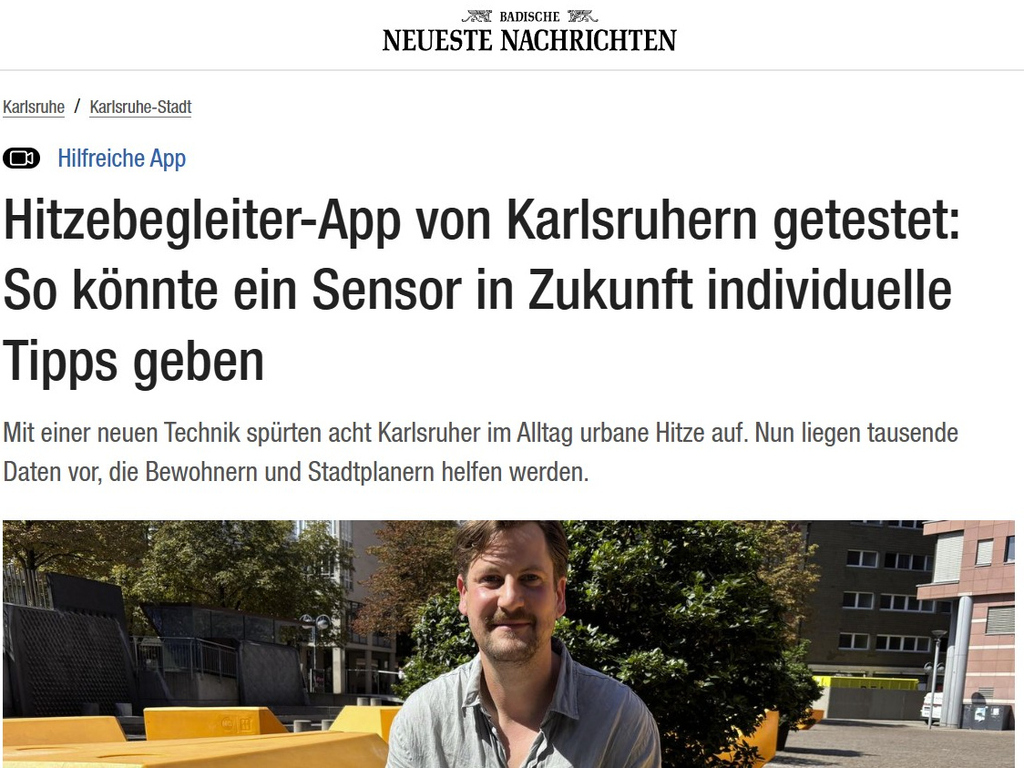
We were pleased about the article in the Badische Neueste Nachrichten (BNN) reporting insights from the feasibility study of the heat companion research project conducted by Niklas Heyden of the Institute for Information Systems (WIN), human-centered systems lab. The heat companion research project provides citizens with a portable environmental sensor and a companion smartphone app to record micro-climate data (temperature, humidity, air quality) in their daily routines.
More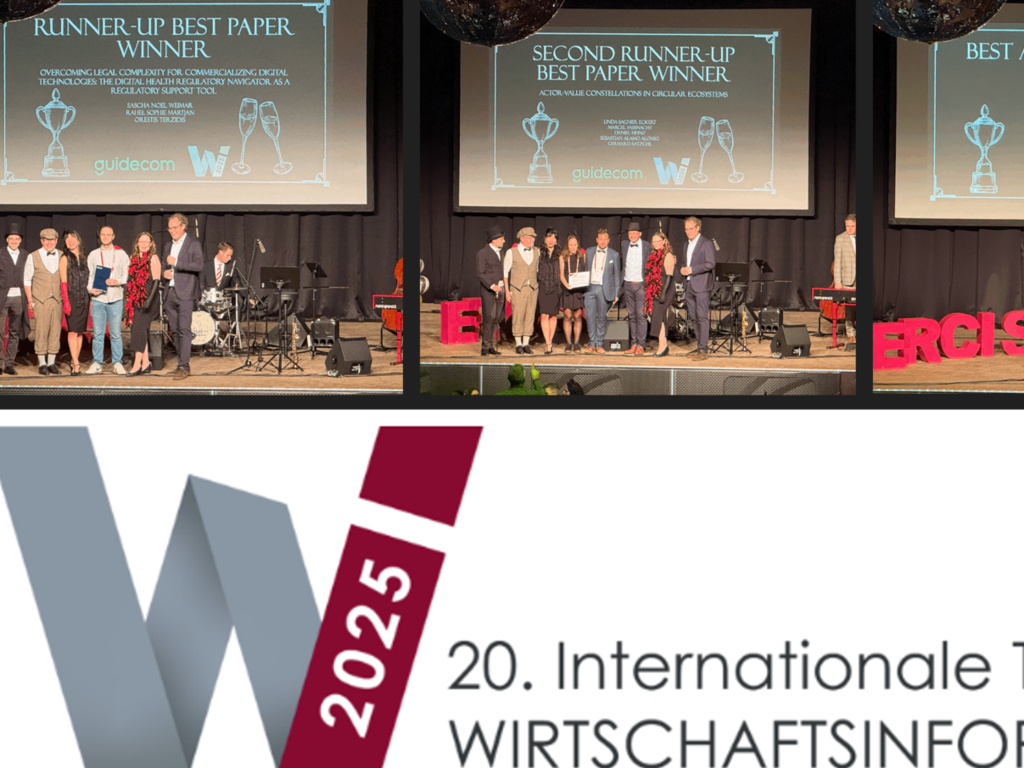
The KIT had a very successful award session at “Internationale Tagung Wirtschaftsinformatik 2025” (#WI25) - demonstrating our academic quality and adding to KIT’s reputation within the community. Two out of the three best papers were contributed by KIT teams:
More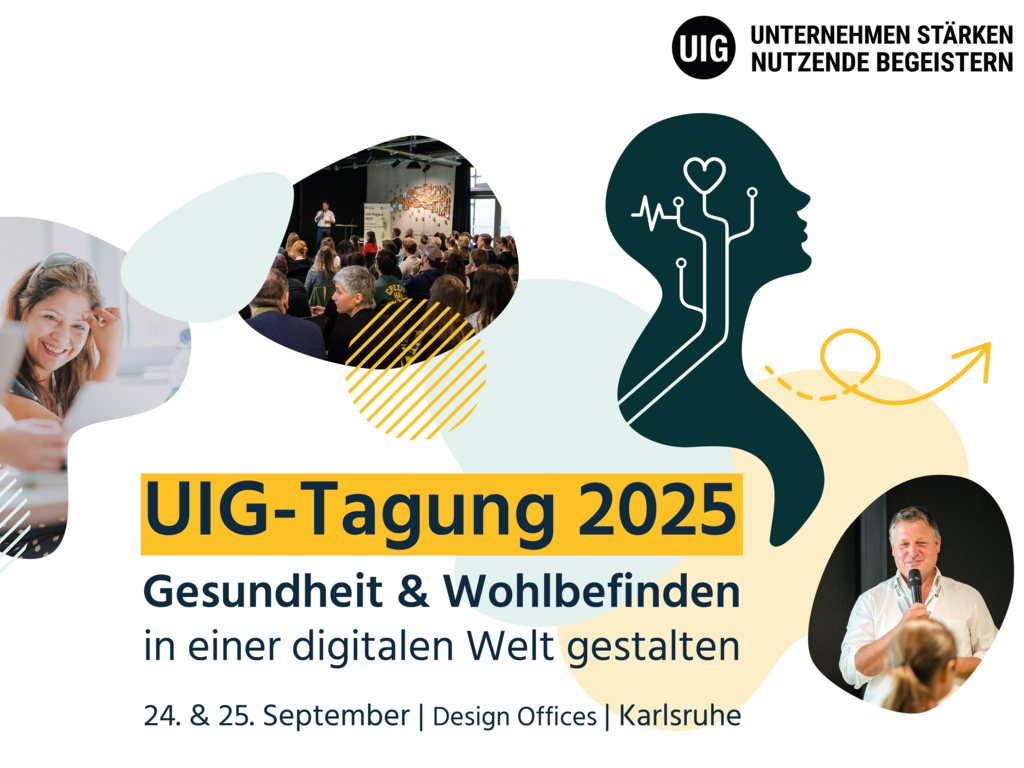
Digital products and services are no longer simply tools,but are becoming increasingly integrated into everyday life and our working environment. This central role also brings with it a responsibility to design digital products and services in such a way that they do not negatively impact health and well-being of their users. At the same time, digital products and services are playing an increasingly important role in the healthcare sector – be it through the ePA (electronic patient record), which enables the exchange of medical data, through mental health bots, or through wearables and fitness apps.
More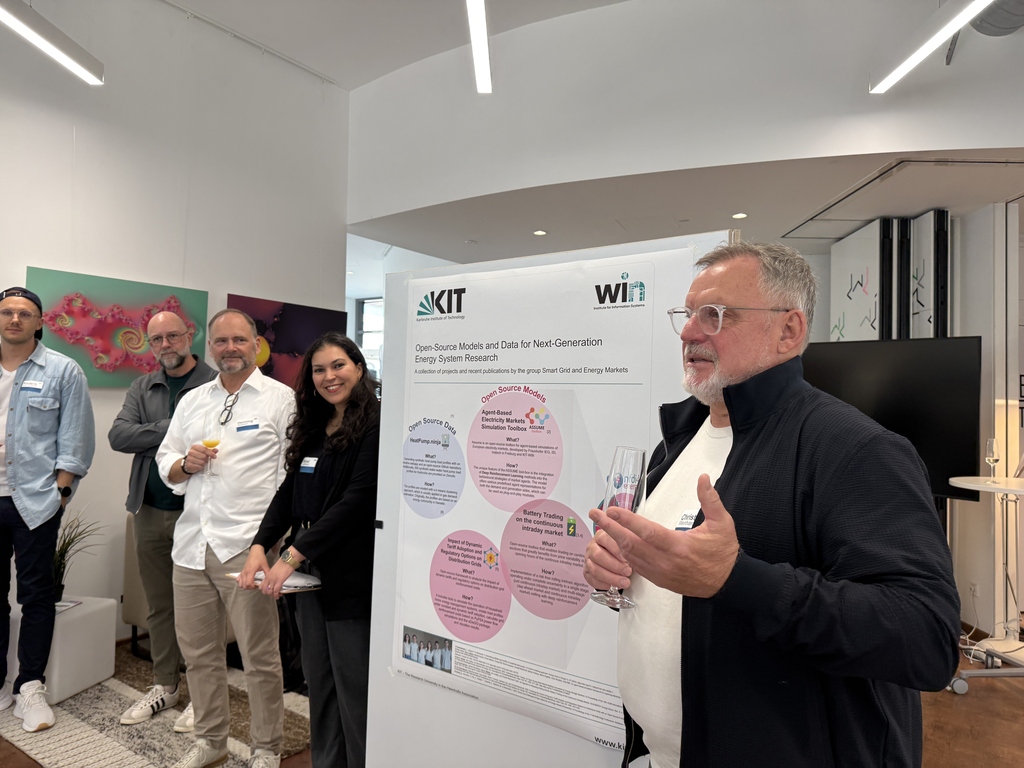
On September 13, 2025, we had the great pleasure of celebrating 25 years of the Chair of Information & Market Engineering. The event brought together alumni, colleagues, and friends to mark a very special milestone: a quarter of a century since Prof. Dr. Christof Weinhardt established and has continuously led the chair.
More
As part of our speaker series "Decision & Design", Prof. Pierre-Majorique Léger from HEC Montreal gave a talk at the KD2Lab on September 12, 2025. As AI becomes deeply embedded in daily life, it enhances efficiency but also risks encouraging uncritical reliance on its recommendations, especially when user interfaces prioritize automation and simplicity. Drawing on a series of NeuroIS experiments, he argued in his talk for a shift from “Don’t make me think” to “Make me think,” highlighting the need for user interface designs that foster critical engagement and responsible AI use.
More
We are delighted to receive the Honorable Mention Award at the Mensch und Computer (MuC) 2025 conference in Chemnitz for our demo paper "Worldhat: A Humanoid Social Robot Interpreter for Multilingual Dyadic Conversations", a joint work by Sandra Müller, Martin Feick and Alexander Maedche from the human-centered systems lab (h-lab) of the Institute for Information Systems (WIN).
More
The Institute for Information Systems (WIN) will be represented with 3 papers at the International Conference Wirtschaftsinformatik, which will take place in Münster next week. Congratulations to all authors and we are looking forward to seeing you there!
More
